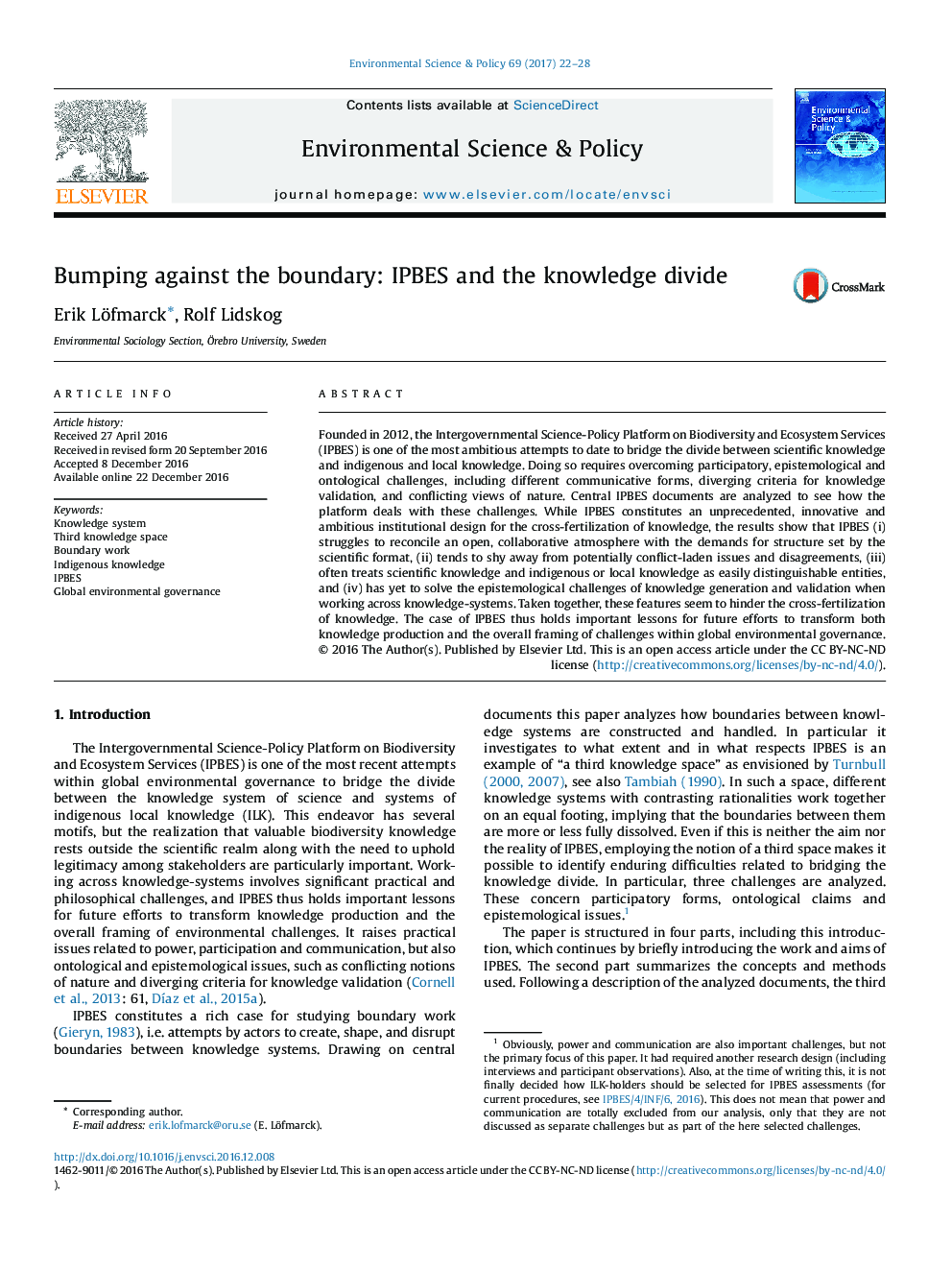| کد مقاله | کد نشریه | سال انتشار | مقاله انگلیسی | نسخه تمام متن |
|---|---|---|---|---|
| 5115864 | 1485039 | 2017 | 7 صفحه PDF | دانلود رایگان |

- Working across knowledge-systems involves significant practical and philosophical challenges.
- IPBES has not yet found forms to deal with contrasting rationalities, ontological claims and knowledge forms.
- IPBES struggles to reconcile its aim to be open and collaborative with the demands set by the scientific format.
- IPBES seems to avoid many contested and conflict-laden issues, from restrictions of participation to ontological disagreements.
- The role of ILK-holders in knowledge generation is still an unresolved issue for IPBES.
Founded in 2012, the Intergovernmental Science-Policy Platform on Biodiversity and Ecosystem Services (IPBES) is one of the most ambitious attempts to date to bridge the divide between scientific knowledge and indigenous and local knowledge. Doing so requires overcoming participatory, epistemological and ontological challenges, including different communicative forms, diverging criteria for knowledge validation, and conflicting views of nature. Central IPBES documents are analyzed to see how the platform deals with these challenges. While IPBES constitutes an unprecedented, innovative and ambitious institutional design for the cross-fertilization of knowledge, the results show that IPBES (i) struggles to reconcile an open, collaborative atmosphere with the demands for structure set by the scientific format, (ii) tends to shy away from potentially conflict-laden issues and disagreements, (iii) often treats scientific knowledge and indigenous or local knowledge as easily distinguishable entities, and (iv) has yet to solve the epistemological challenges of knowledge generation and validation when working across knowledge-systems. Taken together, these features seem to hinder the cross-fertilization of knowledge. The case of IPBES thus holds important lessons for future efforts to transform both knowledge production and the overall framing of challenges within global environmental governance.
Journal: Environmental Science & Policy - Volume 69, March 2017, Pages 22-28